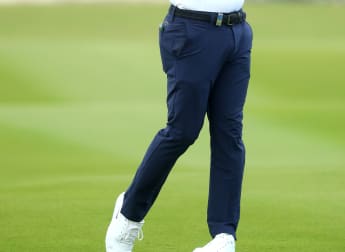A dedicated campaign to raise awareness of the health benefits of golf for people of all ages and abilities will begin this week, with each day dedicated to a different aspect of golf’s health benefits.
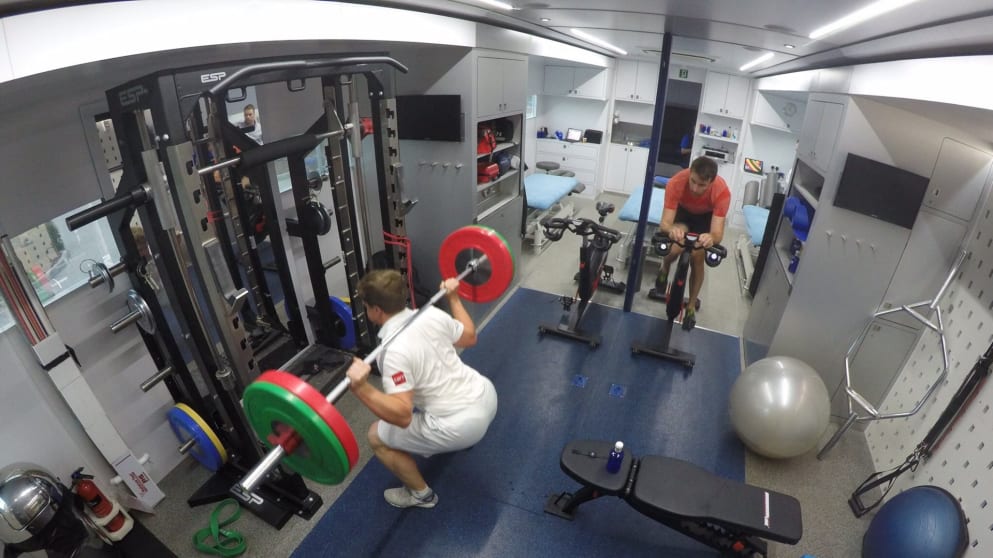
Monday April 15: Fitness
Physical fitness is becoming an ever-more important factor in golf, with many of the game’s top players now dedicating more time to their gym work as opposed to years gone by.
Players such as Brooks Koepka, Rory McIlroy and Alex Noren are no longer just golfers, but athletes, and the European Tour’s Performance Institute (ETPI) is an industry leader in this field.
The European Tour Physiotherapy Unit was set up in 1992 to meet the health and fitness requirements of professional golfers on tour and this has expanded over the last 27 years to now include physiotherapists, osteopaths, chiropractors and sports therapists, while also working alongside the sports medicine team.
Additionally, there are two ETPI centres; one at Terre Blanche Golf Resort in France and another at Jumeirah Golf Estates in Dubai. The centres encapsulate the entirety of golfing fitness and delve deep into players’ games through performance optimisation.
They have created their six steps to success ETPIme model which involves using biomechanical data to improve and adapt players’ swings to enhance their game dependent on their unique ETPI profile.
The combination of walking, muscular activity and social interaction, amongst other factors, help golfers live longer on average. Regardless of age or ability, playing golf is a fitness tool which can be utilised to improve health and fitness.
Dr Andrew Murray, Chief Medical Officer of the European Tour, said: "Playing golf is one of the best things you can do for your health. It adds years to life and improves physical and mental health.
“Best of all it can be played throughout life - from young to old - my daughter and mum both play. By playing you may not win the trophies that our leading players do, but you can enjoy the health benefits.
“Additionally, golf may be the only sport where spectators get health benefits. Our study showed spectators rack up over 10,000 steps on average, as well as watching amazing golf up close."
Nigel Tilley, Consultant Physiotherapist to the European Tour, explains the necessary approach to treating some of the world’s best players.
"Understanding and being able to both identify and have an effect on the psychological and mental components that the athletes experience is part of our everyday work,” he said.
"Golf is a complex and demanding sport physically, mentally and emotionally. Developing the rapport with players is vital and we must always remember first and foremost that we are treating the person and not the injury.”
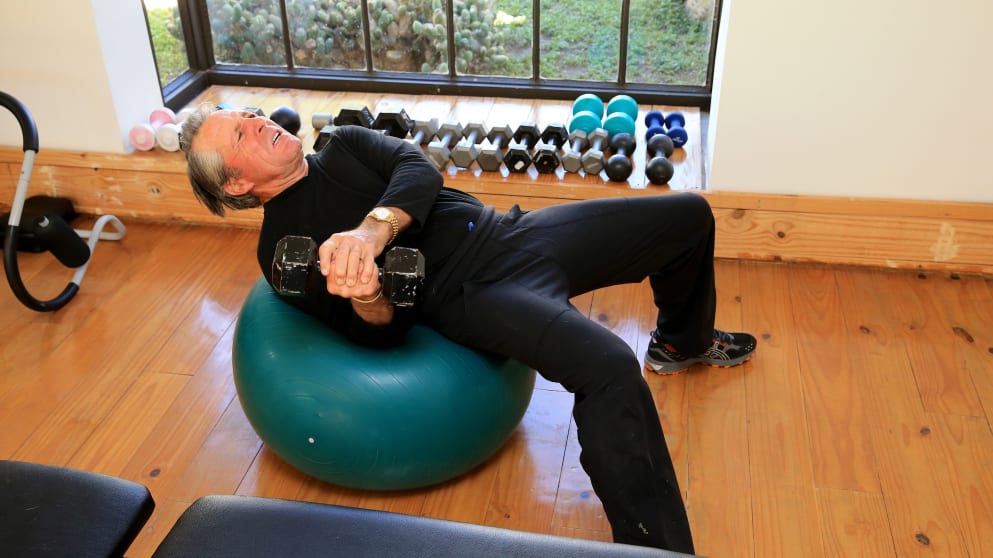
Tuesday April 16: Mental health
From Tiger Woods winning by 12 shots at Augusta National in 1997 to Team Europe completing the Miracle at Medinah in 2012, there are hundreds of golfing memories which people treasure for eternity. However, not everyone has the ability to remember past events.
Over 600,000 people are currently living with dementia in the UK, which is just one strand of mental health. When someone has dementia, they may have increasing problems with their memory, they may become more confused or they may have problems thinking or doing things they used to find easy. Dementia can affect speech and mood, and how people perceive the world around them.
Golf can act as a release from dementia and provide joy to those watching or playing, which improves the mental wellbeing of an individual.
However, whether you have a mental health illness or not, golf is proven way to improve one’s mental wellbeing.
Playing golf on a regular basis can help reduce anxiety, improve confidence and boost self-esteem, all of which contribute to improved mental health.
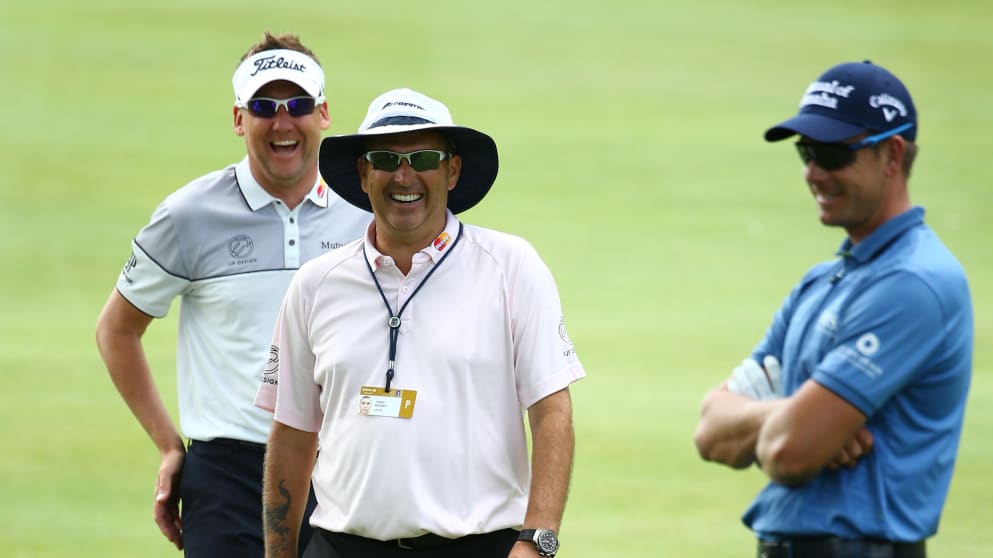
Wednesday April 17: Disability golf
Since 2000, the European Disabled Golf Association (EDGA) has been committed to helping individuals with impairment to start, stay, and succeed in golf. Now encompassing the National Governing Bodies from 28 countries around the world, the EDGA continues to grow and develop the game at all levels for golfers of all abilities. This mission was furthered with the inception of the World Ranking for Golfers with Disability (WR4DG) on January 1, 2019.
Last year, 12 of the world’s leading golfers with a disability from seven different countries competed in the ISPS HANDA Disabled Golf Cup, which was contested immediately after the second and third rounds of the ISPS HANDA Melbourne World Cup of Golf at The Metropolitan Golf Club.
The talent on display was indeed world class, with Team World defeating Team Australia for the trophy. As competitions like these become more prominent, golfers of all skill levels will have an even greater appreciation for the game’s universal appeal.
The sublime talent of golfers with disabilities was on display again only weeks later at the 2019 Special Olympics World Games in Abu Dhabi.
Funds raised by the European Tour Foundation - the Tour’s charitable arm - at the 2018 BMW PGA Championship, were used to finance the travel for Team Great Britain golfers and their coaches to Yas Links Abu Dhabi Golf Club.
The charitable grant has given promising golfers like 18-year-old Warren Clark the opportunity to realise their potential and compete on the world stage.
More info about the Special Olympics here:http://www.europeantourfoundation.org/our-work/special-olympics/
Chris Hull, Communications Director at Special Olympics GB, said: "Special Olympics has helped to transform their attitude not only to sport, but to life as well."
Golf made its debut at the Special Olympics World Games in 1995 and includes a mix of stroke play competition and unified sports team play at some of the most pristine and technical golf courses in each host city.
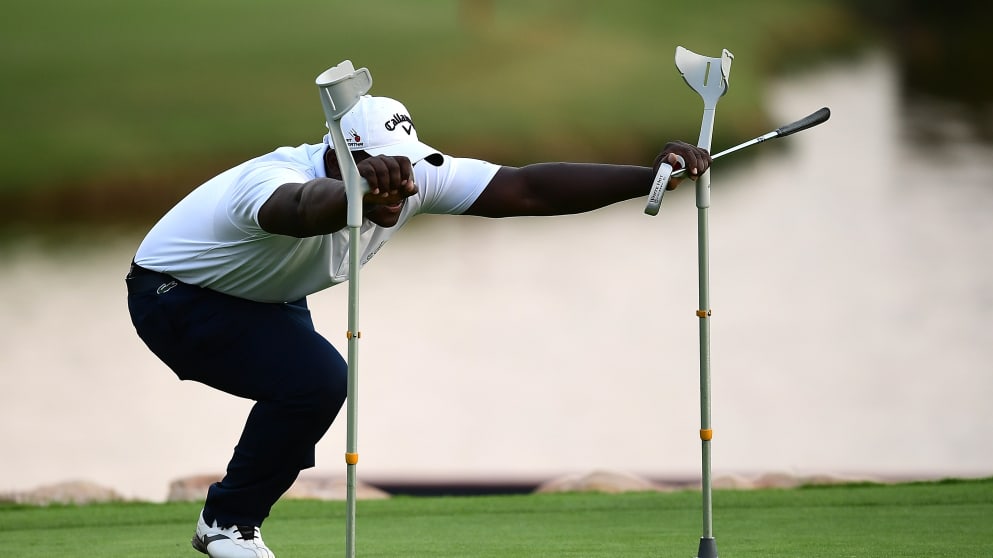
Thursday April 18: Golf for everyone
There is almost no end to the health and wellness benefits that golfers and golf enthusiasts enjoy by remaining active within the game.
As a simple task, walking has a strong correlation to a person’s overall health. It improves cardiovascular fitness, reduces the risk of stroke, and increases both life expectancy and quality of life from both a physical and psychological standpoint.
The health benefits found in golf are for everyone and you do not have to play the game to reap the health benefits of long walks in the sunshine or the improved social bonds of quality time spent with friends and family.
More than ten million people spectate at golf tournaments each year and, unlike many sports, are not restricted to a seat in an arena. They can roam all over the golf course and can walk for miles upon miles.
At the 2017 Shenzhen International, spectators collectively walked the length of the Great Wall of China seven times while at The 2014 Ryder Cup, fans collectively walked four times around the world.
Whether watching or playing, golf is another great way to reduce the amount of time we spend sitting, which a growing body of evidence is now saying can have detrimental effects on our health.
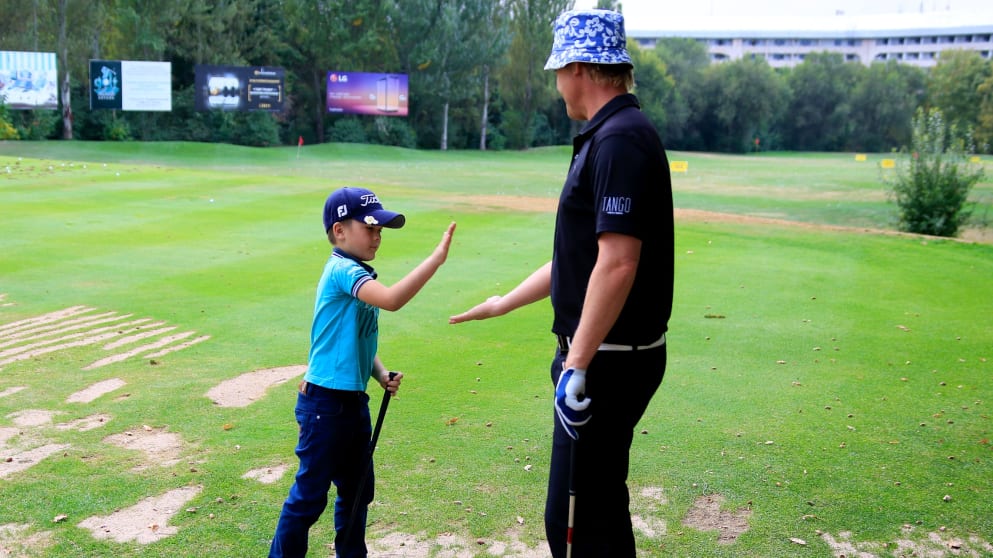
Friday April 19: Golf clubs
With Easter upon us and a long weekend in store, it is an ideal time to visit your local golf club and see what activities they have to offer.
The social aspect of golf, particularly being a member of a local club, is key to health and wellbeing. Many golf clubs contain a lot more than 18 holes, with the clubhouse being the social hub. Playing golf may be the main aspect to its location, but golf clubs may offer a lot more, from a gym to fitness classes, or a place simply to unwind and relax.
Socialising and enjoying the company of others has been scientifically proven to reduce stress and improve our mental health. Whilst golf can sometimes be stressful and tiresome, the company of a fourball can benefit our brains and physical health.
The European Tour Foundation invests in local clubs where European Tour events have taken place, focussing on junior golf and the next generation learning the game, giving local communities the chance to get involved and golf and help benefit their mental and physical.
By helping the local golf clubs, the European Tour Foundation are achieving two of their three guiding principles; supporting the communities in which the European Tour operates and supporting the global development of the game of golf.
